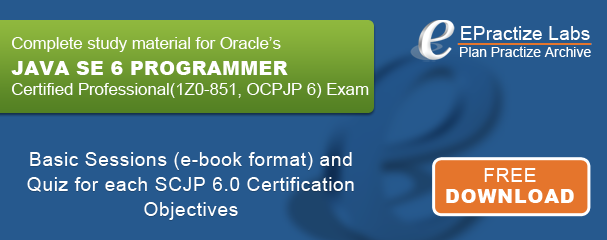SCJP 6 Free Mock Exam
Home | Products | Buy | Support | FAQ | Testimonials | Articles | News | About Us
EPractize Labs © 2011 | Web Resources | Trademarks
& Copyrights | License | Privacy
Policy
SEO Software | Email Marketing Software | Online Exam Software | Newsletter Templates | Java Certification
SEO Software | Email Marketing Software | Online Exam Software | Newsletter Templates | Java Certification










